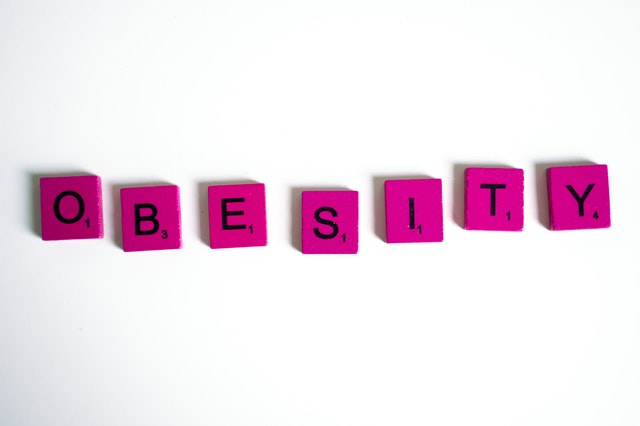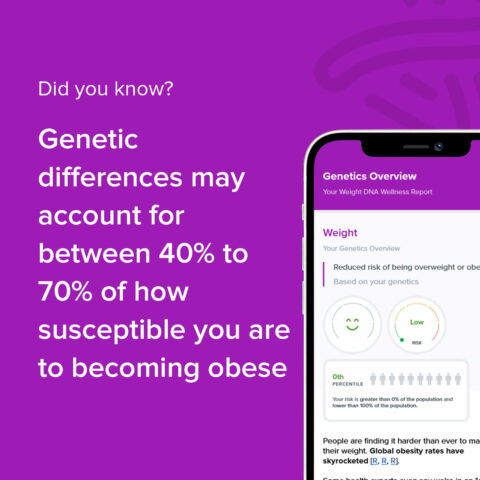
Weight issues are a problem all around the world, among all races and ages. With so many people struggling with their weight, it can make you wonder if factors like DNA may play a role. So, is obesity genetic? Well, the answer is never simple.
Introduction To Obesity And Genetics
Are genetics involved in becoming obese? Popular culture wouldn’t have you believe so.
Some people think that weight issues are a result of a lack of willpower or control over what you eat. It’s not caring about what you put in your body. It’s weakness, because nobody with an ounce of strength is going to just keep eating crap when they see the pounds adding up.
The truth is there are many other factors that can influence weight. Popular culture tends to be a bit shallow. If we dig a bit deeper, we find some of the usual suspects. Our DNA. So, is obesity genetic? Let’s explore here.
Some Facts About Obesity
Let’s be clear, DNA is not the only thing that can affect obesity. Genetics plays a more significant role for some than others, but there are a number of other factors involved, both internal and external, that have an impact.
Over one-third of all adults between 20 and 59 are obese, with the percentages growing as one gets older. A larger percentage of these people are Hispanic or Non-Hispanic blacks [1].
In the U.S., nearly a quarter of Americans say they are dieting. Interestingly, women aged 35-44 who live in the northeastern U.S. are more likely to say they’re dieting [2].
One would think these numbers might skew a bit more toward men, given that for those with severe obesity, men cut up to 20 years off their life expectancy, while for women it’s only five.
One thing is certain though. Obesity is a growing problem, and it’s not because people’s willpower is getting weaker. Environmental factors and previous medical conditions are some of the elements involved with obesity. Genetics may also play a role, as you might expect.
Is Obesity a Disease?
Obesity is a clinical term. It comes from the Latin word for fat, “obesitas”, a source for many other medical terms. The term has been around for a while, but it was only in 2013 that it was labeled as an actual disease [3].
This was done, in part, by the American Medical Association, to alleviate some of the stigma attached to the term and hopefully bring more resources to bear on the issue. But it wasn’t without some controversy, as the method for establishing obesity, the body mass index (BMI), was viewed as flawed as an accurate assessment model.
In Western countries, people with a BMI of 25 and over are considered overweight. A BMI of 30 or greater is considered obese. In some Asian countries, a BMI of 25 and over is considered obese [4, 5, 6].
The problem is that the BMI doesn’t account for the great variety in body shape, size, and muscle to fat ratios. It’s not purely about weight.
Body composition is also important because muscle is more dense than fat. Thus, a muscular athlete and an obese person can have similar BMIs [7, 8], but they might not experience the same health problems as someone with excessive fat on their body.
For this reason, doctors and researchers often use other body weight measurements, including [7, 8]:
- Waist circumference (WC)
- Waist-to-hip ratio (WHR)
- Percentage of body fat (%BF)
- Lean (muscle) mass
So, when considering obesity, it’s important to take into account all of the various factors and realize that defining obesity isn’t an exact science. Regardless though, as your weight increases beyond the “healthy” range for your height, the risks for problems go up.
What Are The Risk Factors For Obesity?
Obesity is actually a complex, multi-factor health issue that doesn’t fit neatly into any one category. This is part of the reason why it is so difficult to deal with. The answer is always, “Yes, but…”
Managing a healthy weight in a sedentary, convenience food oriented world is difficult. You need to consider many factors, including [9, 10]:
- Diet
- Lifestyle
- Environment
- Medical conditions
- Socioeconomics
- Microbiome
- Mental health conditions
- Genetics
There is a lot to navigate when it comes to maintaining a healthy body weight. If you do nothing, odds are good you will eventually have weight issues to deal with.
It’s also more than just the worry about not looking as good or the need to buy new clothes. Obesity can lead to significant issues for both mental and physical health. It may increase the risk of [9, 11]:
- High blood pressure
- High cholesterol
- Heart disease
- High blood sugar/diabetes
- Reproductive issues and erectile dysfunction
- Breathing problems during sleep (sleep apnea)
- Joint and bone disorders (osteoarthritis)
- Some cancers
- Mental health disorders
The point is, obesity is a significant health issue. It causes its own debilitating symptoms and can lead to others.
One of the most frustrating parts of the whole equation is just how random it can feel. How is it that someone can eat like a horse, hardly exercise, and be thin as a rail, while another so much as thinks about a chocolate chip cookie and gains two pounds? It doesn’t feel very fair, but it is far from random.
A lot of how you metabolize food is influenced by your DNA.
Is Obesity Genetic?
Consuming sources of energy, metabolizing those sources, storing and distributing them, is a primary bodily function. So, it should come as no surprise that there is a lot of genetic involvement.
In fact, up to 70% of differences in weight may be attributed to genetics, with more than 100 different genes involved [12, 13, 14, 15, 16, 17, 18, 19, 20].
Among those 100 different genes, none has been more studied than the FTO gene. The FTO gene was the first gene linked to weight gain and is widely believed to have the largest effect [21, 22, 23, 24, 25].
There are many ways this gene can contribute to obesity, and we’re still learning more about it. It may be interfering with hunger hormones by duping you into thinking you aren’t full when you actually are. It might also be influencing other weight-related genes and increasing your appetite [22, 26, 27, 24].
People with the rs9939609 AA genotype may find that they:
- Eat more [22, 28, 29, 30]
- Eat higher calorie foods [22, 26, 31, 29, 32]
- Have food cravings [25]
- Experience emotional and/or binge eating [33]
- Are more susceptible to eating disorders [34]
The not-so-subtle point here is that the cultural stigma of obesity may actually be rooted in genetic mutation. It’s not just lack of control or willpower over how much one eats that can influence obesity. Genetics may also play an important role.
This kind of eating behavior may be a real, legitimate struggle for some people. Knowing this information, however, is the first step in being proactive to counter its influence.
How Can Analyzing Your DNA Help You With Weight?
Weight loss may not always feel like a fair game. Some weight management methods may work well for some people, but not for you, and it can be frustrating. That’s because genetics can influence what strategies work best for you.
We’ve discussed the FTO gene, but there is a far lesser-known gene called rev-erb that may also influence weight. This gene makes a protein called rev-erb alpha which blocks other genes from making their proteins, including for both metabolism and your circadian clock. So, if you have the “A” variants of the rs2314339 SNP, your risks of obesity are higher [35].
Understanding your genetics can help you figure what weight management strategies work best for you based on your DNA. For example, if you have a certain FTO gene variant, a high-protein diet may be more beneficial to you.
The SelfDecode Weight report allows you to optimize your health by uncovering what your genes are doing behind the scenes to affect your odds of struggling with weight issues.
SelfDecode analyzes over 455,000 genetic variants related to weight to give you the most precise data on your personalized report.
Unlike other DNA companies, SelfDecode goes a step beyond merely highlighting your genetic risk for obesity. Your report also comes with evidence-based diet, supplement, and lifestyle recommendations to help manage your weight more efficiently.
Concluding Remarks About Obesity And Genetics
Look, obesity is complicated. It is so far beyond “having a little willpower” that it’s not even funny. When it comes to obesity, genetics plays a vital role and can influence your risks for gaining and losing weight.
Understanding your metabolism, what promotes or inhibits its functioning is an important first step in the process of managing your weight. But why not go a step beyond and see what strategies work best for you based on your DNA?
Because, when it comes to weight, there will be some point in your life, if not now, where you will be forced to take active steps to deal with it.
In this article, we discussed risk factors for obesity. Is genetics involved? Yes, to some extent, but knowing your risks can give you an advantage when it comes to improving your health. For gene-based weight management strategies, you should check out SelfDecode.
Related Articles
- Top 6 Best DNA Tests For Weight Loss
- What Is The Best DNA Test For Diet?
- Green Tea And Weight Loss: What Does Science Say?
- Coffee And Weight Loss: Does It Really Work?
- Is Osteoarthritis Genetic? Facts, Risks Factors & Ways To Deal
- What Is A Genetic Mutation?



